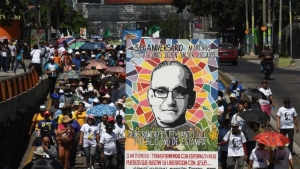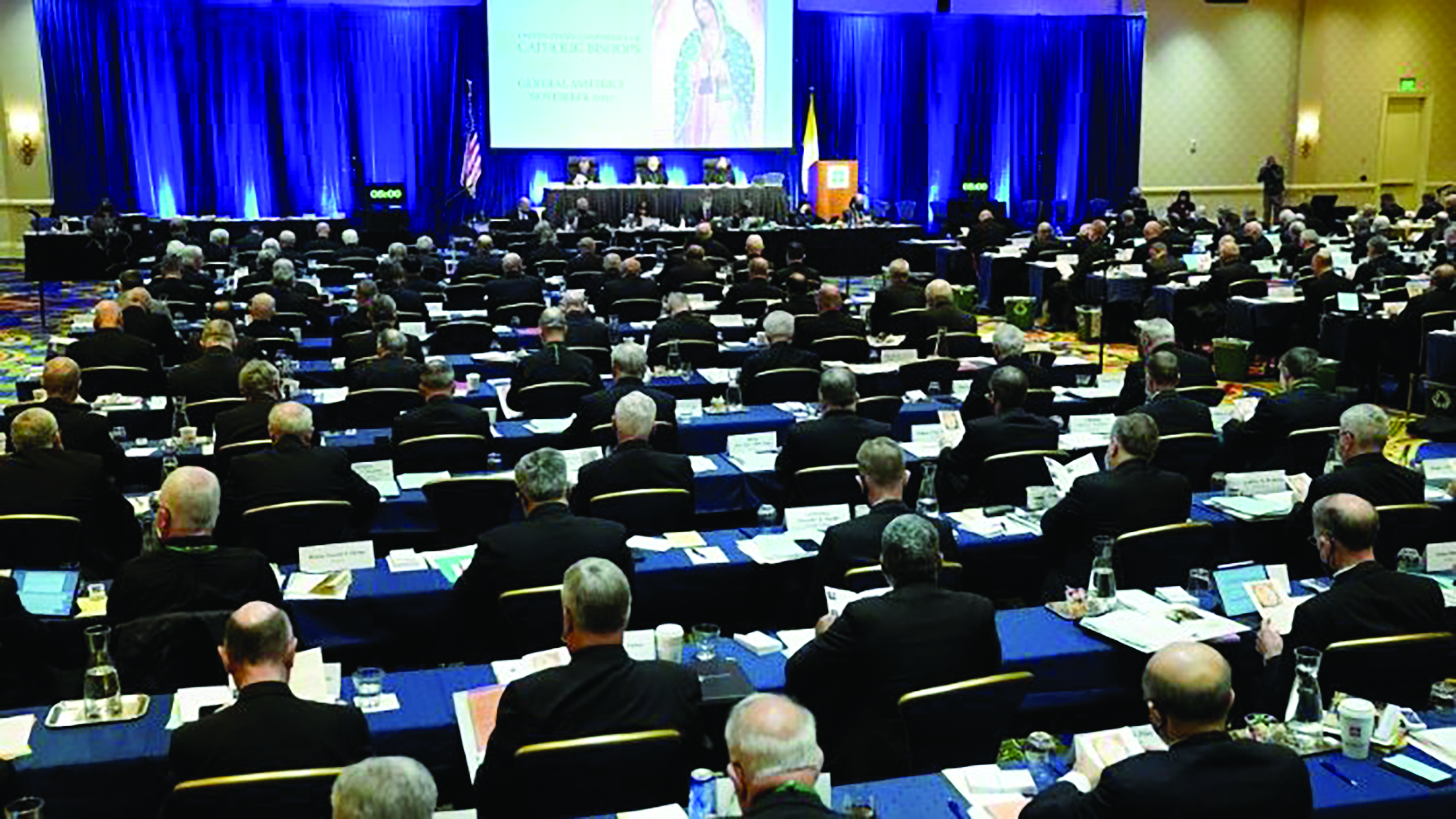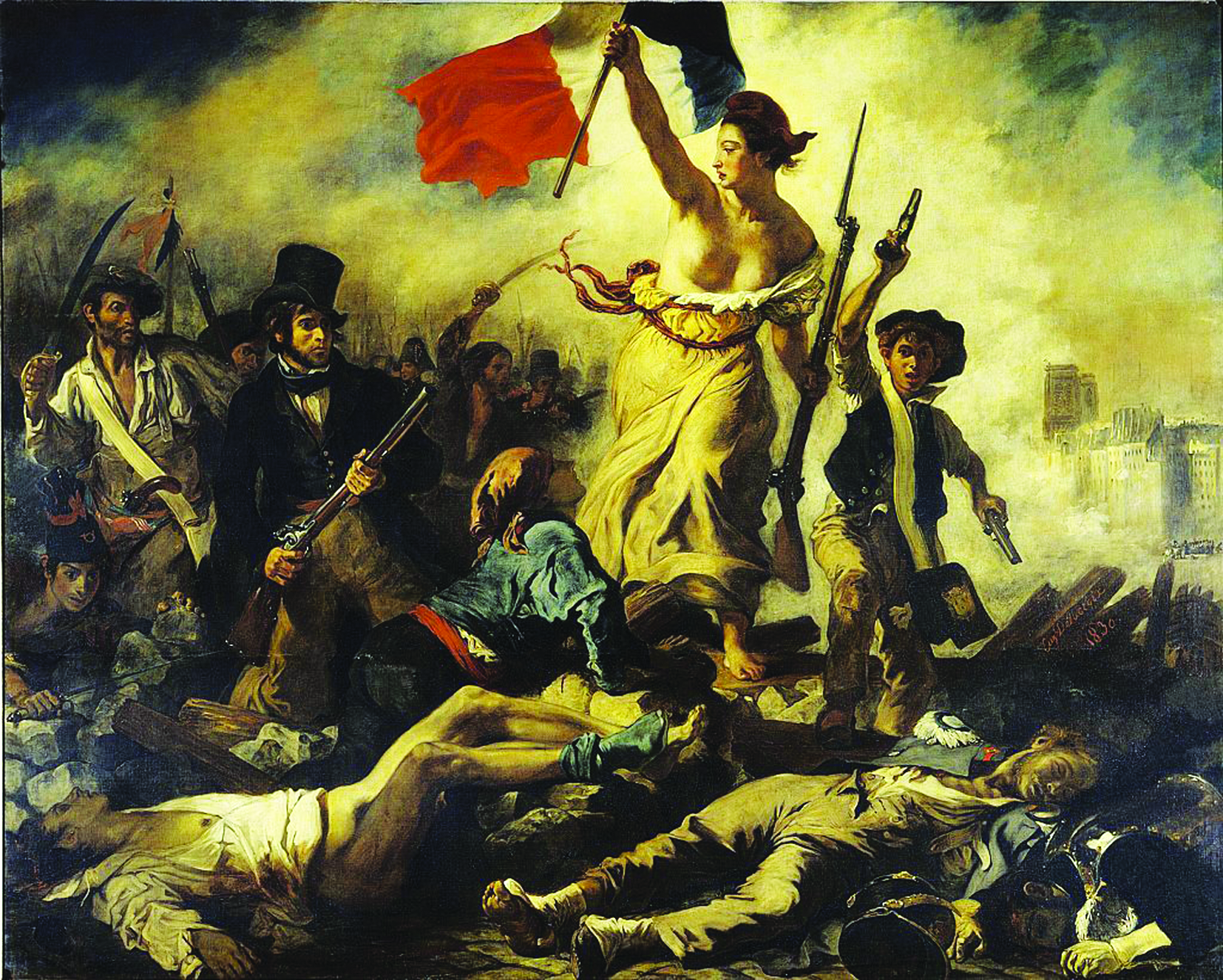 Today, Romero is widely acclaimed as a saint and martyr across the Christian world and beyond. Last year the former Archbishop of Canterbury Rowan Williams preached at a special Evensong, in Westminster Abbey, attended by leaders of many faith groups in the United Kingdom The service included a new anthem written by Scottish composer James MacMillan to mark the centenary of Romero’s birth.
Today, Romero is widely acclaimed as a saint and martyr across the Christian world and beyond. Last year the former Archbishop of Canterbury Rowan Williams preached at a special Evensong, in Westminster Abbey, attended by leaders of many faith groups in the United Kingdom The service included a new anthem written by Scottish composer James MacMillan to mark the centenary of Romero’s birth.
Julian Filochowski is chair of the Archbishop Romero Trust, set up to promote greater knowledge of the saint’s life and legacy, as well as to support human rights efforts in Latin America today.
Canonized in Salvadoran hearts
He says the people of El Salvador canonised Oscar Romero in their hearts soon after his assassination. In 2015, he notes, the local Church celebrated Romero’s beatification in San Salvador, “one of the highest profile non-papal beatifications in history, with well over half a million people present”.
Canonisation, Filochowski continues, is one step further, “recognising him as a saint of the Universal Church, not just a saint for Salvadorans or Latin Americans” so it is “right and proper” for the celebration to take place in the Vatican.
Martyr of Vatican II
Commenting on the fact that Romero will be raised to the altar together with Pope Paul VI, Filochowski says it was the latter “who implemented the Second Vatican Council, while the archbishop was “the first martyr of the Council”, assassinated for implementing its teaching on the preferential option for the poor.
He notes that while Romero came under attack, “including by his fellow bishops”, Paul VI gave him “unconditional support”.
Opposition in the Church
In past decades, he says there was strong opposition to his beatification and canonisation by bishops in the Church in Latin America, and even in the Roman Curia, since many people feared that “the canonization of Romero would be the canonization of liberation theology”.
Today, he adds, we have a more balanced evaluation of “authentic liberation theology”, beginning with the visit of Pope John Paul II to the tomb of Romero which “changed the atmosphere in the Church”.
Model of apostolic courage
Romero, Filochowski says, was a man “who said what he thought and meant what he said, he talked the talk and walked the walk”. He didn’t just love the poor, he adds, since “that’s relatively easy”, but he also defended the poor with “apostolic courage” and became a model for bishops, priests and all Christians.
Praying for conversion of hearts
Commenting on the violence in El Salvador today, he says the Church is trying to combat it and people are praying for the example of Romero to change people’s hearts and minds.
As a personal friend of Romero, Filochowski says “he has kept me strong in my faith at moments of difficulty and doubt”. He concludes: “I never believed I’d live to see his canonization, it’s beyond my dreams and I’m just very happy”.
By Philippa Hitchen

 Today, Romero is widely acclaimed as a saint and martyr across the Christian world and beyond. Last year the former Archbishop of Canterbury Rowan Williams preached at a special Evensong, in Westminster Abbey, attended by leaders of many faith groups in the United Kingdom The service included a new anthem written by Scottish composer James MacMillan to mark the centenary of Romero’s birth.
Today, Romero is widely acclaimed as a saint and martyr across the Christian world and beyond. Last year the former Archbishop of Canterbury Rowan Williams preached at a special Evensong, in Westminster Abbey, attended by leaders of many faith groups in the United Kingdom The service included a new anthem written by Scottish composer James MacMillan to mark the centenary of Romero’s birth.




Facebook Comments